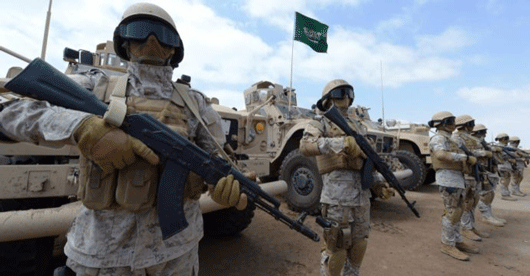
Over one year has passed since Saudi Arabia and other Sunni Arab states launched Operation Decisive Storm in Yemen.
As Yemen’s ongoing civil war continues to impose a staggering human toll on the Yemeni people, there is much discussion about the conflict’s diplomatic particulars and the outside powers’ strategic gambits.
Relatively little attention has been paid, however, to the damage sustained by Yemen’s human infrastructure over the course of the crisis.
Throughout the conflict, fighting has essentially fallen along a tripartite division among Houthi revolutionary ...forces, Gulf Cooperation Council (GCC)-backed Sunni fighters, and hardline Sunni extremists ..., most notably al-Qaeda in the Arabian Peninsula (AQAP).
There is often little distinction between combatants and noncombatants, and civilian centers regularly become deliberate targets.
Martial strength, to a certain extent, correlates directly to population strength, as widespread violence among various ethno-religious enclaves has come to define Yemen’s chaotic landscape.
Most disturbing is the frequency with which civilian populations have become targets of reprisal.
...
Ongoing defiance from the Houthis threatens both. Houthi forces also maintain control of Yemen’s capital, in outright political and sectarian opposition to the Saudi rulers.
Yemen’s strategic position with regard to the monitoring and handling of crude shipments from the Gulf directly threatens the kingdom’s oil hegemony.
The Saudi military has been openly accused of deliberately using cluster munitions against Houthi villages. Although appalling to outside observers, this strategy has a core intent.
Indiscriminately attacking Houthi population centers sends the message that refusing to relinquish military opposition will lead to wholesale destruction.
Prolonged destruction of civilian centers breaks the enemy’s will to fight, accelerates surrender, and skews the terms of surrender to one side’s advantage.
The more heavily damaged faction is less likely to successfully negotiate shifts in power and territory after hostilities cease. Indeed, war is politics extended through violence.
The Saudi-led bombing campaign is a brutal collective punishment to dissuade the Houthis from further undermining Riyadh’s interests.
...
It remains to be seen if Riyadh’s tactic will ultimately work. Although the human toll has been atrocious, there is no indication that the loss of lives has diminished the Yemeni people’s... will to fight.
Sectarian animosity can be highly effective at sustaining martial antagonism.
The Houthis are fighting not only for political purposes, but also out of a tenacious desire to preserve their culture and heritage from hostile Sunni influence.
AQAP has long been an active player in Yemen’s civil crisis.
Local Houthis are furious at the presence of hardline Sunni extremists in an area steeped in Houthi history and custom.
The execution of dissident cleric Sheikh Nimr Baqir al-Nimr at the hands of the Saudi government was met with fierce outrage and turned him into a modern martyr for Shia and Houthis across the Middle East.
Unfortunately, there are no signs that the Yemeni conflict is near a close.
The crisis continues to flare, with Saudi Arabia pursuing a campaign of heavy bombing against Houthi holdouts.
The civilian death toll alone had exceeded 3,000 as of March 2016, with the majority of noncombatant casualties borne by Yemen’s Houthi population.
Houthis perceive the ongoing standoff to be in part an assertion of their dignity and autonomy.
Any Houthi who falls in the conflict does so in the name of a war fought to protect Houthi honor and heritage.
For this reason, Saudi Arabia’s persistent airstrikes against population centers and infrastructure may do little to blunt Houthi morale and will to fight.
Unless the kingdom decides to curtail certain aspects of its bombing campaign, however, the heavy civilian toll will continue to rise. Prospects for repairing the damaged country will be dim.
Source: Stratscope, Edited by Website Team